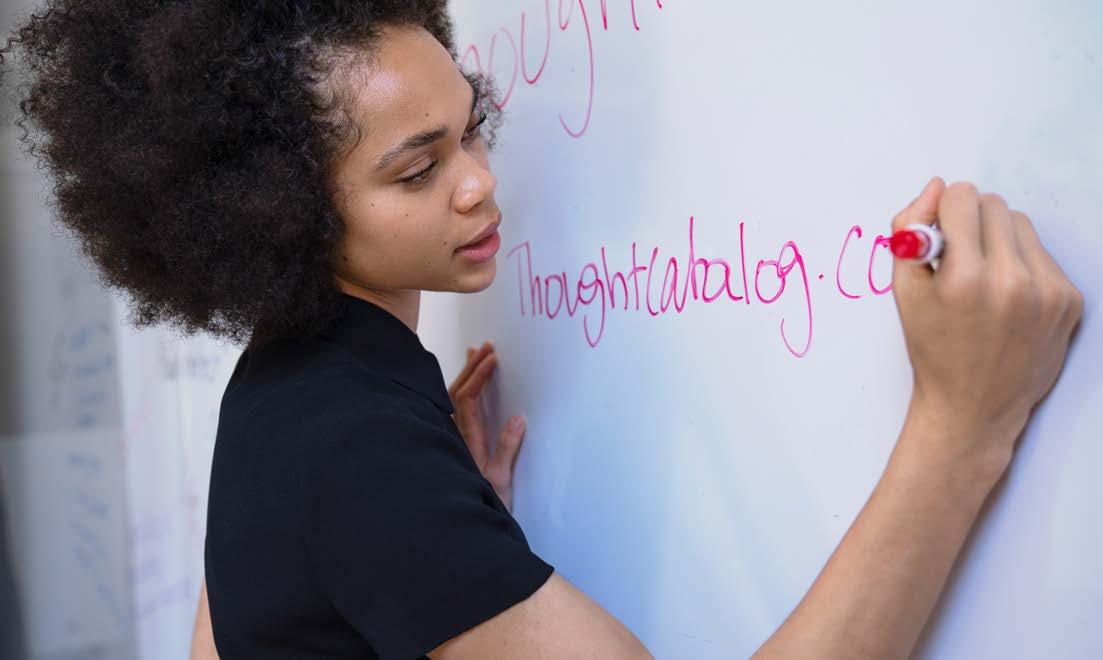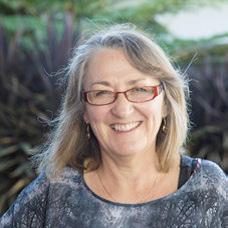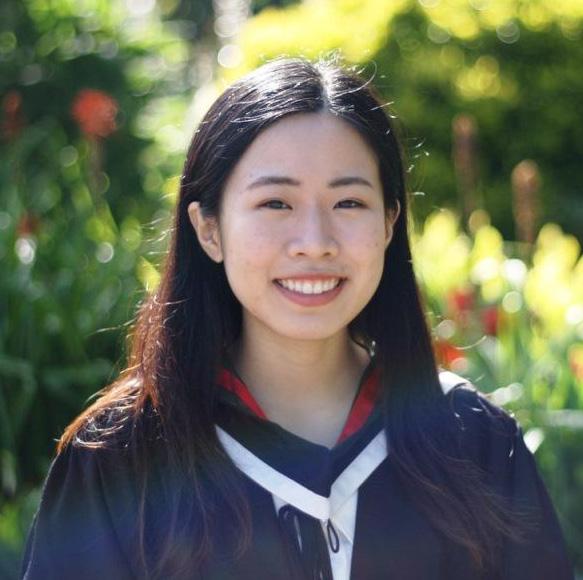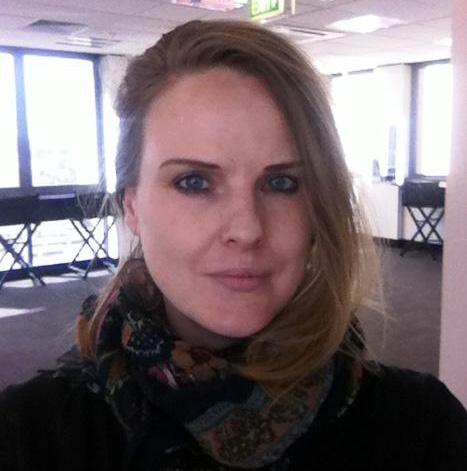
6 minute read
Graduate Women Victoria Award Winners
Congratulations to the following women who were recently awarded scholarships and bursaries by Graduate Women Victoria (GWV). GWV was founded in 1920 as an association of women graduates who were inspired by the foundation of the International Federation of University Women earlier in the same year. The founders of the association shared a common goal of promoting understanding and friendship amongst university women of the world, irrespective of their race, nationality, religion or political opinions. They wished to encourage women to apply their knowledge and skills to the problems arising at all levels of public life and to encourage their participation in the solving of these problems.
Award Winners 2020
Advertisement
Indigenous Students
Marilyn Godley Scholarship for an Indigenous undergraduate student ($5,000) — Valerie Brown, Federation University
Fourth Year Honours in Arts/Humanities
Taines Scholarship ($7,000) — Emily Palk, La Trobe University
Education Masters Students
WISENet Bursary ($3,500) — Katrina O’Brien, The University of Melbourne Doris Daniel Scholarship ($7,000) — Kate Spear, Deakin University
Masters Students
SWAN Bursary ($3,500) — Chloe Waddell, Australian Catholic University Ethel Bage Bursary ($3,500) — Delaram Ansari, The University of Melbourne Jessie Webb Bursary ($3,500) — Dannielle Mills, Monash University Phillipa McCall Scholarship ($7,000) — Sabrina Poon, The University of Melbourne
PhD and Doctoral Degrees
Bursaries in memory of Feminist Fathers ($4,000) — Areni Altun, Monash University — Catherine Brown, Monash University Judith Leedham Bursary ($4,000) — Cait Beddows, The University of Melbourne Nancy Mills Bursary ($4,000) — Hue Mai La, Monash University Madeleine Capicchiano Bursary ($4,000) — Tasnim Sammak, Monash University Judith Rodriguez Scholarship ($8,000) — Heather Cameron, Deakin University William and Elizabeth Fisher Scholarship ($8,000) — Stefani Vasil, RMIT University Yvonne Aitken Scholarship ($8,000) — Danielle Bayes, Swinburne University of Technology
Centennial Scholarships ($9,000) — Ingrid Dudink, Monash University — Elena Vella, The University of Melbourne
Special Awards ($1,000) were presented to 18 students Centenary Education Grants ($500) were
presented to 39 students. https://gradwomenvic.org.au


Graduate Women Victoria Award Winners
We feature three of the GWV Award winners.

Heather Cameron is currently a PhD Candidate in the School of Communication and Creative Arts at Deakin University. Her thesis is entitled Cancer Poetry: Responding to loss through autopathography and elegy, and she is supervised by Professor David McCooey. This creative arts thesis includes an exegesis which discusses the way in which poets with cancer, or poets as carers of loved ones with cancer, have elegised the considerable losses they have experienced, due to the diagnosis and treatment of the disease. The main work in the thesis is a creative artefact of 80-100 poems written by Heather, about her experiences as both a cancer survivor and a healthcare professional in the fields of oncology and palliative care. Her PhD research builds on previous work which has included a research Masters of Applied Science (La Trobe University) in which she explored the dominant themes in bereavement narratives and considered whether they were aligned with current grief theory and practice. Heather’s working background in education and healthcare spans over 30 years in New Zealand and Australia, and she continues to work in the oncology field as a service development manager in the Barwon South Western Integrated Cancer Service (BSWRICS). She is passionate about equitable access to cancer care, and in particular works to ensure that people living in remote and regional areas of the state, have opportunities to engage in optimal healthcare provision. Heather hopes to continue her research postdoctorate, into how poetry provides solace for those who are grieving the losses associated with cancer, cancer survivorship, and death, dying and bereavement. Her dream is to live by the sea and write poetry, with the help of her cats and occasional visits from friends and family.

As a migrant who was raised by my singlemother suffering from chronic schizophrenia, life has never been easy. However, I was fortunate to have two passionate and knowledgeable science teachers who helped shaped my career choices in high school. My general science and biology teacher introduced me to the world of microbiota. I remember being absolutely intrigued by his passion and his stories of how faecal transplants can modulate host physiology. My year 10 chemistry teacher dedicated 14 years of his life to studying genetics as a postdoctoral researcher. His classes were intellectually stimulating, which prompted me to read about science beyond the scope. This was perhaps the first sign of my interest in scientific research, which he recognised. With my outstanding performance in class, he encouraged me to pursue research. However, he did warn me of the arduous journey ahead. Regardless, I knew that my curious mind and perseverance would make this path extremely rewarding. Following my Bachelors, I mustered the courage to contact microbiota-related research groups. This led me to my current master’s project looking at the microbiota and developmental enteric neurophysiology. I thoroughly enjoyed not only the research, but also the interactions within and beyond the laboratory, including experts of the field at conferences. My current experience as a student researcher has cemented my desire of continuing the academic research path. I hope to further current understanding of microbiota and host health and inspire next generation students the same way my teachers and supervisors did. A career in research is going to be challenging, however, an easy life offers no potential for growth. I hope and am determined that my story and research will inspire and improve the health of future generations.

I am currently studying a Masters of Applied Learning and Teaching with Deakin University. I have a background in the creative arts and have been a vocational education trainer before making the move to study my Masters. The course has an applied learning focus and encourages us to think beyond a traditional transmissive approach to teaching. There is a strong emphasis on experiential and applied learning pedagogies which can be used in traditional school settings or alternative learning environments. We are also specifically trained in creating innovative and engaging Victorian Certificate of Applied Learning (VCAL) programs for students undertaking the VCAL in secondary schools or in an alternative setting. I am undertaking half of my Masters as a major research pathway and my research focus is on specialised learning programs such as the Young Mums VCAL which enables young pregnant and parenting women aged between 15 and 21 to gain their final years of schooling in a safe and supportive environment where they can bring their babies and gain their education at the same time. The aims of my research will be to analyse these programs to see if they are meeting the complex needs of these learners and to also analyse the policies that are put in place which directly affect the young women and their families. Despite there being government legislation in place to ensure that young pregnant and parenting students can maintain their right to access education, most students in this situation find that many schools cannot or will not cater for their needs, and sometimes overtly or covertly encourage them to leave school altogether. Further research that I would like to consider in the future will ideally gather data on the educational benefits for the children of the younger mothers who attended these specialised programs, with the aim of influencing longer term thinking when it comes to policy development and the funding of these programs. Once graduated, my career goals are to work in community learning centres that provide flexible learning options for young people who for whatever reasons have become disengaged from the mainstream.










